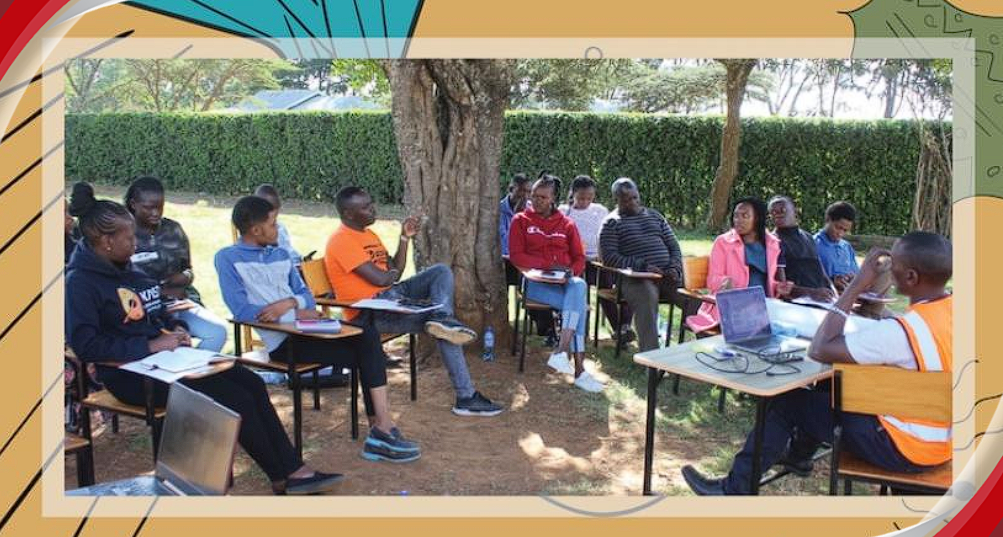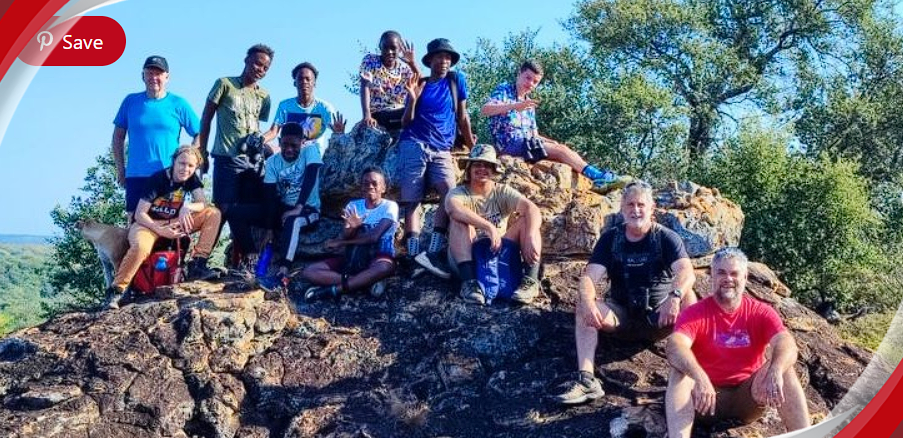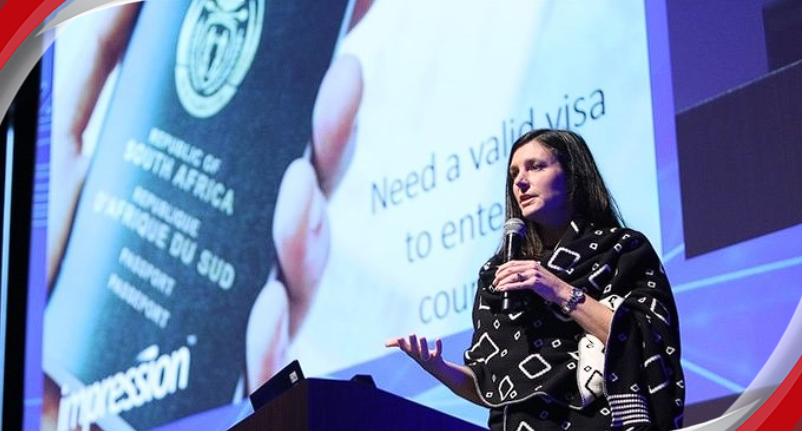Articles
Digital repression and resistance in Venezuela: A silent crisis within the political crisis
-
1 year ago
Venezuela has experienced two decades of power struggles, with the same political party in control since 1999. Hugo Chávez, who served as president from 1999 until his death in 2013, was succeeded by his close ally, Nicolás Maduro, and started a political era of chavismo that still holds its grip today. Venezuela was very visible in international headlines in moments of deep political crisis and violent crackdown of protests, especially in 2014 and 2017.
In the last few years, however, news circulating outside of Venezuela has suggested a false normalisation of the situation there. Even more absent from the headlines is the digital side of that conflict, one that combines a profound lack of resources and infrastructure, that translates into constant internet and electricity blackouts, combined with surveillance and severe controls of information online. The control of media and communications in Venezuela is a pervasive and influential force that significantly impacts the information landscape. This control has become increasingly complex and authoritarian, intertwining with the political conflict that has weighed heavy on Venezuelans for the last two decades.
Amidst the siege, censorship and control, according to organisations like IPYS Venezuela, digital rights are disconnected in the country. According to their report, 2022 saw numerous incidents of suspension of informative accounts, attacks on media servers, privacy violations and digital blockades against 40 national and foreign media outlets. Moreover, online surveillance persisted, further eroding the fundamental freedoms of citizens.
Recently, local organisations like Venezuela Inteligente and Espacio Público highlighted a transparency report by the Spanish telecommunications company Telefónica – the parent company of Movistar Venezuela –which revealed that it had intercepted over 20% of its customers' phone and internet lines in the country by 2021, and received 30 requests to block websites. The report confirmed how, in 2021, Movistar Venezuela intercepted a total of 1,584,547 customer lines in Venezuela. In the past year alone, the government requested 861,004 line interceptions in the country, four times more than the recorded interceptions in 2016. The Internet Observatory Ve Sin Filtro indicates that these interventions include practices ranging from call interceptions and monitoring of text messages (SMSs) to providing location information of individuals through their cell phones, or monitoring their internet traffic.
In parallel, the assault on freedom of expression has become a grim routine in Venezuela. The challenges are amplified by infrastructure woes. Due to lack of resources like newsprint as well as harassment through legal means, most media outlets have been increasingly pushed to the digital realm, where they encounter censorship and relentless attacks. Most often, these news outlets are targeted with Distributed Denial of Service (DDoS) attacks. In other cases, the state demands private internet service providers (ISPs) block access to the sites, sometimes under threat of closure.
Civil society organisations have played a vital role in documenting and monitoring such incidents of ongoing abuses of the right to expression and information. Espacio Público, IPYS Venezuela and Ve Sin Filtro diligently record the numerous (over 259 in 2022) internet and electricity disruptions in Venezuela, as well as instances of news site hacks and government harassment of journalists.
When the time comes for Venezuela to look back at today’s political conflict, the work of these organisations will be paramount to understand the complexity of the struggles and fight against impunity.
Growing resistance and counterpower
In the intricate web of Venezuela's crisis, the digital realm plays a crucial role as a battleground for power struggles and counterpower. On one side, the invisible hand of the state pushes for media control, surrounding news outlets and content creators with all sorts of limitations and straight up censorship. On the other, alliances of civil society actors and journalists have displayed resilience and resourcefulness in finding alternative avenues to continue the flow of information to Venezuela inside and from outside the country. In recent years, several initiatives have garnered international attention and recognition for their innovative approaches.
Venezuela Inteligente’s project, Conexión Segura (Safe Connection) is a great example of an initiative to spread awareness on digital security. Conexión Segura is a series of easy-to-understand and entertaining YouTube videos that present the fundamentals of digital security like using VPNs, encrypted messaging services and safe passwords. The videos have thousands of views and viewers often post comments thanking the team for the tips.
Conexión Segura was created to help security trainers address the needs of at-risk individuals such as journalists and human rights defenders. However, Andrés Azpúrua, director of Venezuela Inteligente and a member of Conexión Segura’s creative team, says the videos also emphasise the importance of privacy as a fundamental right. They highlight common security risks beyond those faced by journalists and human rights defenders, like privacy concerns stemming from abusive partners or employers. "The videos also serve as a response to those who needed something more accessible than complex guides. We paid heed to people's attention spans and the limited time they had available," explains Azpúrua.
The general nature of Conexión Segura's approach has protected it from direct government attacks, but every action seems to elicit a response. It appears that the government's watchful eye has discovered these videos. Azpúrua points out that after Conexión Segura gained recognition, some of the tools like VPN services Psiphon and TunnelBear recommended by them were blocked in the country.
One innovative analogue initiative to fight digital control is El Bus TV, comprising a band of dedicated journalists who take news directly to the people. They embark on buses, combining the news they learn through their own networks and other media, and read them to commuters directly while the bus goes around the city. In most cases, the team brings a cardboard TV frame through which the journalist reads the news. In addition to reporting on the usual topics such as politics, economy, and sports, their editorial line at times also includes informative content on nutrition, disease-screening campaigns, breastfeeding and vaccination. Their goal is to produce creating hyperlocal, service-oriented news programmes for each bus route.
Venezuela Inteligente and El Bus have also worked together to expand their messages around popular communities. The team from El Bus have resorted to other offline methods like distributing news on posters. Venezuela Inteligente also takes Conexión Segura content on USBs during these visits, giving the devices to local teachers and community leaders to disseminate the videos.
In both these cases, the use of offline technologies, or technologies making content available offline, dominates in combination with digital ones to bypass the country’s digital limitations.
Informal learning and self-curation
Journalists have embraced communication platforms like WhatsApp, forming groups that disseminate the latest news to the public. Moreover, activists and news outlets produce comprehensive online posts and articles guiding readers on how to use Virtual Private Networks (VPNs) to bypass web page blockades. Measuring the impact of these VPNs is not easy nor is everyone able to use them successfully, so some outlets have been collaborating with international organisations to publish content on mirror URLs hosted securely to protect against government or DDoS attacks. Journalists and nonprofits also mitigate and study DDoS attacks against news outlets from government-aligned groups, identifying patterns and sources. They also study the work of companies dedicated to removing web content through copyright claims, which constitutes one of the most powerful attacks suffered by the media and NGOs. Incidentally, digital reputation management companies often participate in these efforts, seeking to erase information that links their clients to abuses perpetrated by the government.
As people seek news amidst these challenging circumstances, traditional websites are being complemented by diverse communication channels that adapt to individuals' preferences and circumvent limitations. News is taking on different forms, aligning with people's preferred modes of communication. Some outlets like El Pitazo and Servicio de Información Pública take advantage of the flexibilities that come with audio formats shared on SoundCloud, and open parallel spaces to make sure important stories can be accessed and shared in spite of the limitations.
WhatsApp has also been an important vehicle of news and communication. The Servicio de Información Pública has WhatsApp groups and Telegram channels that disseminate their audio stories. El Pitazo is closer to a regular news outlet, but with the numerous targeted blockages, they saw in WhatsApp a space to get closer to their readers, and also be informed by them. When the COVID-19 pandemic hit in 2020, El Pitazo started experimenting with WhatsApp groups and chats inviting experts, and also creating a community of informants that help them write news for different communities and stay close to their sources.
According to Venezuelan journalist and media specialist Luis Carlos Díaz, this current scenario can be described as a “social filter” through online social media, which brings the most relevant information from different media flows into people’s networks. These bits only gain meaning if people appropriate them and share them within their own personal networks (such as social networks and private platforms like WhatsApp). Diaz explains, “People act as curators for their communities. So, journalism faces the challenge of being relevant or captivating in order to be shared by others. It is within this citizen-driven distribution that the 'common sense' of this dispersed society operates. What happens as a result? It gives greater significance to things that provoke indignation, joy, hope, or disappointment. In such a model, there is an informational poverty and an abundance of emotionalism. Thus, this underlying informational fragility creates a scenario that makes us more vulnerable to rumours, fake news, and disinformation agendas wielded by those in power. How do we respond? With people who weave communities of trust and curate information. It is an everyday endeavour. The hunger for information doesn't cease, and creative avenues are carved out for its dissemination even when there is no economic model to support it."
Alliances beyond borders
International collaboration also plays a pivotal role in how people can access information from independent outlets. On the one hand, activists and journalists engage in cross-border collaborations that grow stronger over time. A lot of these initiatives depend on the discretion of those involved, ourselves included, to be able to continue coming up with strategies of support.
On the other hand, Venezuela’s growing diaspora, amidst a massive migration wave, confronts communication challenges. This dynamic creates new geographies and information flows influenced by digital security considerations and the quest for reliable sources. This collective experience shows a way of building secure and well-nourished information flows and online participation.
Meanwhile, civic society organisations continue to tell the story and keep count, countering efforts to keep Venezuela a country without data – an invisible country in many ways. The last census was in 2011, and most of the data given by government institutions is either not available or not reliable.
Looking ahead, critical questions come to mind regarding the use of artificial intelligence (AI) in spreading propaganda and misinformation. Some of these questions call for new observations anchored in human behaviour and learning potential: how are individuals learning to discern trustworthy information sources and protect themselves? How are networks outside Venezuela helping those inside the country? Could “social filters” also be a vehicle for people to learn more about digital security as well as misinformation?
Given how authoritarian use of technology has become a global trend, the Venezuelan case can serve as an important example for groups defending human rights and freedom of expression around the world aiming to come up with strategic and creative ways to build and strengthen their own resilience.
Related Articles Posts
Categories
Popular Post
-
 SA’s IT spend to outpace GDP growth 1 year ago
SA’s IT spend to outpace GDP growth 1 year ago -
 Vodacom, Netstar launch free in-taxi Wi-... 1 year ago
Vodacom, Netstar launch free in-taxi Wi-... 1 year ago -
 South Africa under pressure to fill cybe... 1 year ago
South Africa under pressure to fill cybe... 1 year ago -
 Organisations with a strong employee val... 1 year ago
Organisations with a strong employee val... 1 year ago -
 Joint policy-in-action event highlights... 1 year ago
Joint policy-in-action event highlights... 1 year ago -
 Boost your digital transformation journe... 1 year ago
Boost your digital transformation journe... 1 year ago








